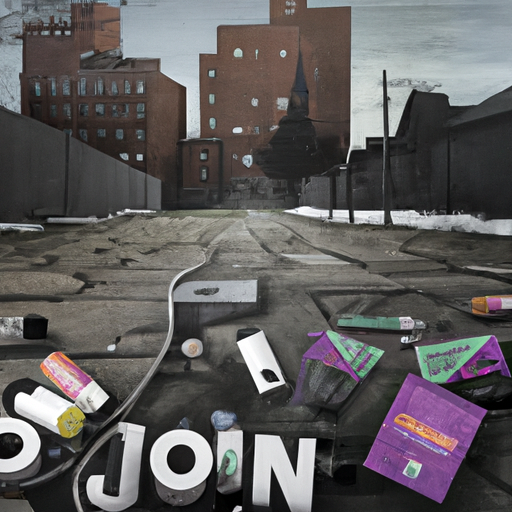The Canadian Opioid Crisis: A Deep Dive into Recent Developments
With the opioid crisis continuing to grip Canada, the effects on our society are far-reaching and devastating. As reported by the CBC in a recent article (source), the Ohio-based pharmaceutical company that recently settled a landmark opioid class-action lawsuit in the US, is now being sued by the BC government. The discussions surrounding whether other provinces will join the lawsuit are expected to play a significant role in the fight against this opioid crisis.
The Opioid Crisis and its Effects
Thousands of Canadians across the country are dying from opioid-related overdoses every year, leaving behind a trail of destruction including escalated crime rates, increases in homelessness, and strained healthcare resources. The opioid crisis is more than a health crisis—it is a humanitarian crisis, a social crisis, and an economic crisis.
Effects on Homelessness and Crime
In addition to the direct health impacts, the opioid crisis is severely contributing to homelessness and crime across Canadian cities. As substance dependency grows, individuals often find themselves unable to maintain stable housing or employment, leading to an increase in homelessness.
Street crime related to substance dependency, like theft and violence, also rises as individuals struggle to fund their addictions. The societal costs of the opioid crisis are vast in this sense, impacting not only those directly affected through addiction but entire communities.
Role of Naloxone
The article brings to spotlight naloxone, a life-saving drug that can reverse the effects of an opioid overdose. Wide-scale training and distribution of naloxone kits, coupled with public education regarding its use, is one of the measures taken to mitigate the crisis’s immediate impacts.
The Lawsuit and the Ongoing Fight
British Columbia announced a lawsuit against Johnson & Johnson, alleging deceptive marketing of opioids, contributing significantly to the crisis. By rallying against the manufacturing giant, BC aims to recoup some of the economic losses incurred due to opioids.
Legal action may serve as a deterrent to other pharmaceutical companies involved in opioid production and distribution, forcing them to reassess their business practices and engage in corporate social responsibility.
Here are some key points highlighted in the CBC article:
- The opioid crisis has significantly escalated crime rates and homelessness in Canada.
- Naloxone, which can reverse opioid overdoses’ effects, is being widely distributed and used as an immediate aid.
- The BC government is suing pharmaceutical giant Johnson & Johnson for its alleged role in amplifying the crisis through deceptive marketing.
Towards a Solution, Together
The opioid crisis continues to ravage Canada, impacting every facet of society from health to homelessness to crime rates. It’s a multifaceted issue, requiring coordinated efforts from all levels of government, healthcare, communities, and individuals. Legal action against corporations implicated in the crisis steps up the efforts to hold them accountable and compensate for the damage caused.
We need to continue raising awareness about addiction, working towards reducing stigmas, providing effective treatment options for those in need, and being proactive in policy and legislation to address this ongoing crisis.
Concluding Thoughts
The opioid crisis is a multidimensional issue that requires a proactive, coordinated effort from all sectors of society. This includes healthcare, social services, legal, and governmental bodies. The lawsuit against Johnson & Johnson is a significant step in holding corporations accountable for their role in the crisis and, hopefully, turns the tide in our fight against the opioids menace. As we navigate, learn, and fight, it’s crucial to remember the human lives at its core, and endeavour to create a healthier and safer society.


